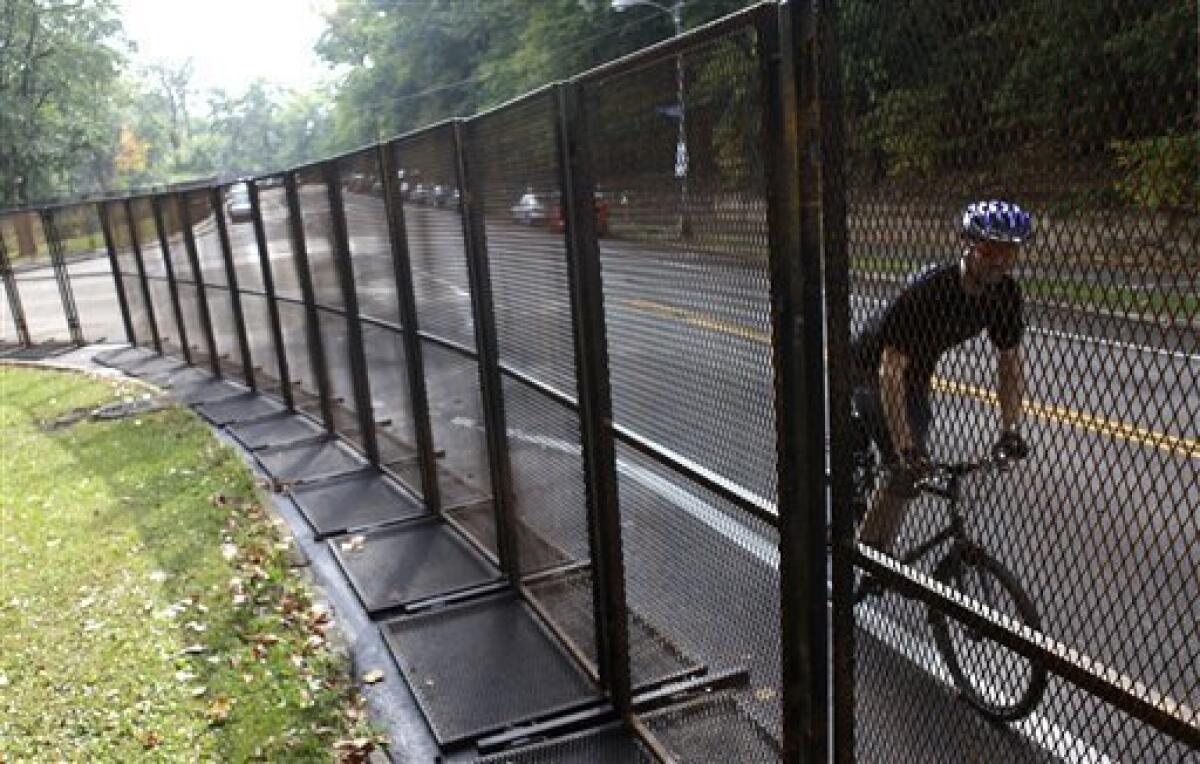Pittsburgh officials work round-the-clock for G-20

While the Group of 20 summit focuses on global economics, a group of Pittsburgh officials is working tirelessly to promote the Steel City.
On Thursday, nearly two dozen heads of state will convene along the Allegheny River to discuss the global economic crisis. They may announce a breakthrough, or more likely, a joint communique.
For one group of Pittsburghers, including Mayor Luke Ravenstahl and Allegheny County Executive Dan Onorato, the start of the summit signals the beginning of the end of countless phone calls, e-mails, late nights, 12-hour days and lost weekends.
“The world wants to know why Pittsburgh was chosen to host this big international financial summit ... why not a big city like New York,” Ravenstahl press secretary Joanna Doven said.
Doven is juggling Ravenstahl’s schedule, making sure he fits in everything from interviews with CNN and the official Chinese news agency Xinhau to panel discussions and local briefings.
“In many ways, the work has been very taxing. It’s been difficult on all of us,” Ravenstahl said. “People have stepped up to the plate, and they’ve worked long hours ... now we have an opportunity over the next few days to make sure all that hard work pays off.”
The past few months, Doven says, have been a blur: 12-hour days – hours more on the phone from home; weekend meetings; chats with spokespeople across the country; studying how previous summits have been handled; finding safe briefing areas for the media and ironing out countless kinks.
“You’re always thinking, you’re always thinking, what does the public need to hear from us, what should I be thinking about that I’m not thinking about,” Doven said, describing the thoughts that keep her awake at night.
Onorato has done interviews with news outlets from London to Shanghai. Last week, he handled several interviews, flew across the state to an event in Philadelphia and returned to Pittsburgh the same night for a grand opening and to have dinner with county officials from across the country.
“He’s just kind of running from event to event to event. He’s been doing discussions, interviews, hosting his own events; we’ve been taking people on tours of the region,” said Onorato spokesman Kevin Evanto. “So, it’s been kind of crazy.”
Bill Flanagan, with the Allegheny Conference on Community Development, spent the last month juggling interviews with Japanese and Italian journalists while figuring out how to staff 19 information desks and a welcome center.
He stocked the welcome center with free bottled water, wireless Internet, maps and even free toothbrushes and toothpaste.
“We’re sort of inventing how to do this as a community,” Flanagan said. “We’ve never really brought an event like this to a community like Pittsburgh.”
At Regency Global Transportation, a business that provides vehicles and drivers to dignitaries visiting Pittsburgh, staff have worked 15 hour days since the beginning of September, said Tom Miller, Regency’s president. He’s done the U.S. Open, the NFL’s opening night and other large events – but nothing like the G-20.
“Each country has been different,” Miller said, noting that there was no one go-to person for the event. So some countries were well-organized, setting up transportation months in advance, while others were still signing contracts on Friday. Some even had several different people calling to ask the same questions.
“It required us to be on our toes and it required us to pick and choose with whom we wanted to work,” he said.
Robert Petrilli is the managing director of Pittsburgh’s G-20 Partnership, a group established specifically to plan the summit.
Since June, Petrilli has fielded seemingly constant e-mails and phone calls. He has made sure there are plenty of signs, helped oversee the city’s cleanup and planned a “Welcome the World” reception.
“It’s really been a push,” Petrilli said. “Something that would normally take nine months ... we had to build it in three months.”